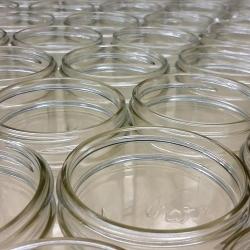Source Institutions
Add to list Go to activity
Activity link broken? See if it's at the internet archive

Learners test two jars containing soil, one covered and one open, for changes in temperature. After placing the jars in the Sun, learners discover that the covered jar cools down more slowly. This investigation is part of a set of demonstrations and activities that can be used together for a larger lesson. Resource contains vocabulary definitions and suggestions for assessment, extensions, and scaling for different levels of learners.
- Under 5 minutes
- 10 to 30 minutes
- 1 cent - $1 per group of students
- Ages 8 - 14
- Activity, Experiment/Lab Activity
- English
Quick Guide
Materials List (per group of students)
- Hot Stuff! Activity 2 Worksheet
- Masking tape and pen
- Graph paper
- 2 identical, large jars
- 2 outdoor thermometers (must fit in jar, below rim)
- 2 cups of garden soil
- Plastic wrap (1 large square to fit over jar opening)
- 1 rubber band
Subjects
-
Earth and Space Science
-
Earth Processes
- Weather and Climate
-
Earth Structure
- Atmosphere
-
Earth Processes
-
Engineering and Technology
-
Engineering
- Civil Engineering
- Environmental Engineering
-
Engineering
-
Life Sciences
-
Ecology
- Human Impact
-
Ecology
-
Mathematics
-
Data Analysis and Probability
- Data Collection
- Data Representation
-
Measurement
- Units of Measurement
-
Data Analysis and Probability
-
Physical Sciences
-
Heat and Thermodynamics
- Heat and Temperature
-
Heat and Thermodynamics
-
The Nature of Science
-
The Scientific Process
- Conducting Investigations
- Gathering Data
-
The Scientific Process
Audience
To use this activity, learners need to:
- see
- read
- touch
Learning styles supported:
- Involves hands-on or lab activities
Other
Includes alignment to state and/or national standards:
This resource is part of:
Access Rights:
- Free access
By:
- Kolenbrander, Amy ; Yowell, Janet ; Mach, Natalie ; Schaefer Zarske, Malinda ; Carlson, Denise ; Kotys-Schwartz, Daria
Source Collection
- TeachEngineering
Rights:
- All rights reserved, Regents of the University of Colorado, 2004
Funding Sources:
- Fund for the Improvement of Postsecondary Education (FIPSE)
- U.S. Department of Education
- National Science Foundation, 0226322
